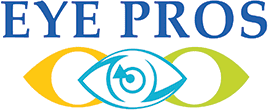Monthly vs Daily Contact Lenses: Which Is Better for You?
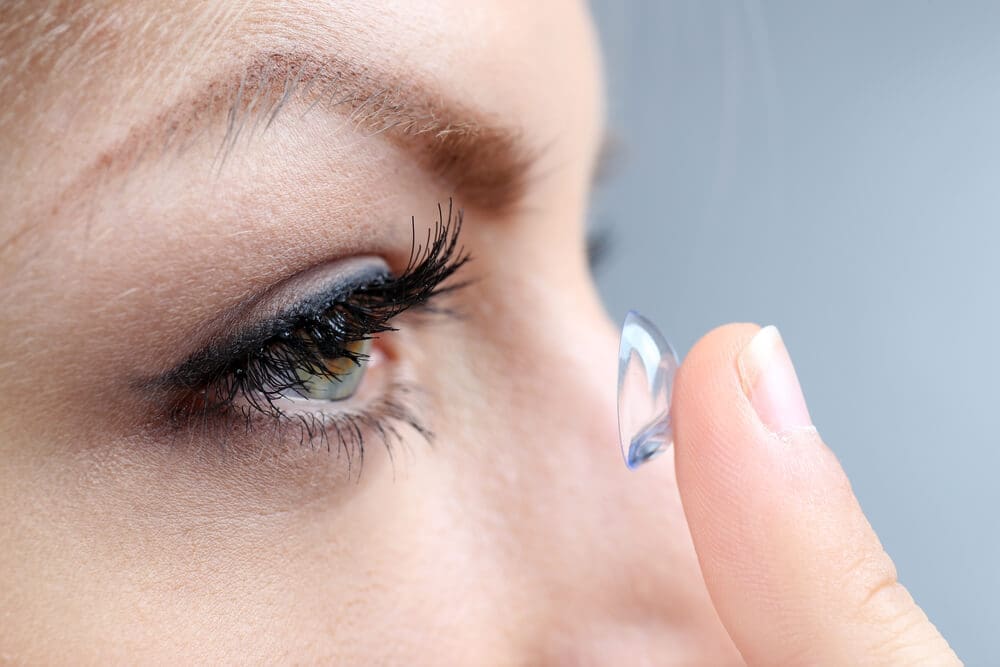
Did you know that 61 percent of the population wear either glasses or contact lenses at least sometimes? Many people are increasingly switching from glasses to contact lenses. Nowadays, over 45 million Americans wear contact lenses, according to the Centers for Disease Control and Prevention. But if you want to switch to contact lenses, it’s difficult to decide which is right for you: daily contact lenses or monthly contact lenses. Keep reading to find out about the pros and cons of each to help you decide what’s right for you. Let’s go! The Pros of Daily Contact Lenses Daily contact lenses are disposable single-use lenses. They are normally made from thin materials with high water content. Due to the deposits from your eyes that build up over the day, daily contact lenses are advised not to be used more than once. 1. Easy and Convenient Daily contact lenses are really convenient and easy to use. You just put them in during the morning and throw them away at night. This can save you lots of time since you don’t have clean them or store them overnight. 2. Reduced Risk of Infection Because they’re only worn for one day at a time, the build-up of natural deposits is much less. This means that you are less at risk of eye infections or allergies. You’re also unlikely to incur dry eyes for shorter periods of time. 4. Great for Newbies, Occasional Wearers, and Children Even though daily contact lenses are suitable for a wide range of people. They are especially appropriate for new wears who aren’t used to contact lenses. Dailies can be a better introduction to newbies. Younger people are more likely to rip or tear monthly lenses. This doesn’t matter so much when it comes to daily contact lenses. While occasional contact lens wearers often find that dailies are much better for them. If you only want to wear contact lens when you go out for an evening or do sport, it’s perhaps better to go for dailies. The Cons for Daily Contacts Lenses Now you know the benefits of daily contact lenses, let’s take a look at some of the downsides of dailies. 1. More Expensive It is usually much more expensive to use daily contact lenses than monthlies. Even though with monthlies you also have purchase solution to clean them, it’s overall still costly to go with dailies. 2. You Cannot Fall Sleep It’s definitely not safe for you to fall asleep with your dailies in your eyes. They are simply not designed to sleep with. You don’t want to risk it! 3. Not Environmental Friendly We live in a throw-away culture, disposable lenses are part of this culture. If you want to be environmentally friendly, you should look for an alternative to daily contact lenses. 4. It’s Easy to Damage Daily contact lenses are made of a thin and delicate material. While this allows them to be comfortable in your eye, it also means they are easy to damage and tear. The Pros of Monthly Contact Lenses Monthly contact lenses, or bi-weekly ones, are much thicker and robust than daily contact lenses. This makes them more resistant to drying out but they must be maintained in solution when not in use. Let’s take a look at the pros of monthly contact lenses. 1. Cost-Effective Even though you have to pay for the solutions for the lenses and any complications that may arise as a result of wearing monthlies, they are more cost-effective overall. This is especially true if you ensure that you follow the instructions of your optician. 2. You Can Sleep in Some Although it’s never recommended that you sleep in your monthly contact lenses, it’s not as harmful to sleep in monthlies. There are some kinds of monthlies that are approved for sleeping. It’s important to check this with your optician. 3. Monthlies are more environmentally friendly Instead of throwing away your daily lenses each day, monthlies can last you throughout the month. This makes them the environmentally friendly option because they’re less wasteful. The Cons of Monthly Contact Lenses Now you know the pros of monthlies, it’s time to find out what’s the negatives of getting monthlies. 1. Need to Be Cleaned and Stored You’ll accumulate a lot more build up of deposits with monthlies. This means that the risk of complications arising is much higher. This can be avoided if you ensure that you regularly clean and store them appropriately. But this can be a real pain to remember to do each day when you go to bed. 2. Easy to Forget It’s really easy to forget that your monthlies need replacing. Many people end up overwearing their monthlies over the approved period of time. Therefore, it’s essential that you set a reminder on your smartphone or calendar to replace your monthlies with new ones. 3. Expensive to Replace If you damage or lose your monthly contact lenses, you’ll have to replace them. Although monthlies are cost-effective compared with dailies over the entire year, if you keep breaking or losing them, it’s expensive to replace. Dailies vs Monthlies? Do you need to get contact lenses? It’s difficult to decide whether daily contact lenses or monthly ones are right for you. With our list of the pros and cons of each, you can make an informed choice which is right for you. If you live in Idaho and Utah and need help ordering contact lenses, contact us at Eye Pros today. To better serve you, we have offices conveniently in Boise, Nampa, Twin Falls, Idaho Falls, Pocatello, Logan, Orem, Ogden, and Layton. We also make it easy for you to order contacts online, so you can get the lenses you need anytime, day or night!
What Happens When You Are Sleeping with Contacts?
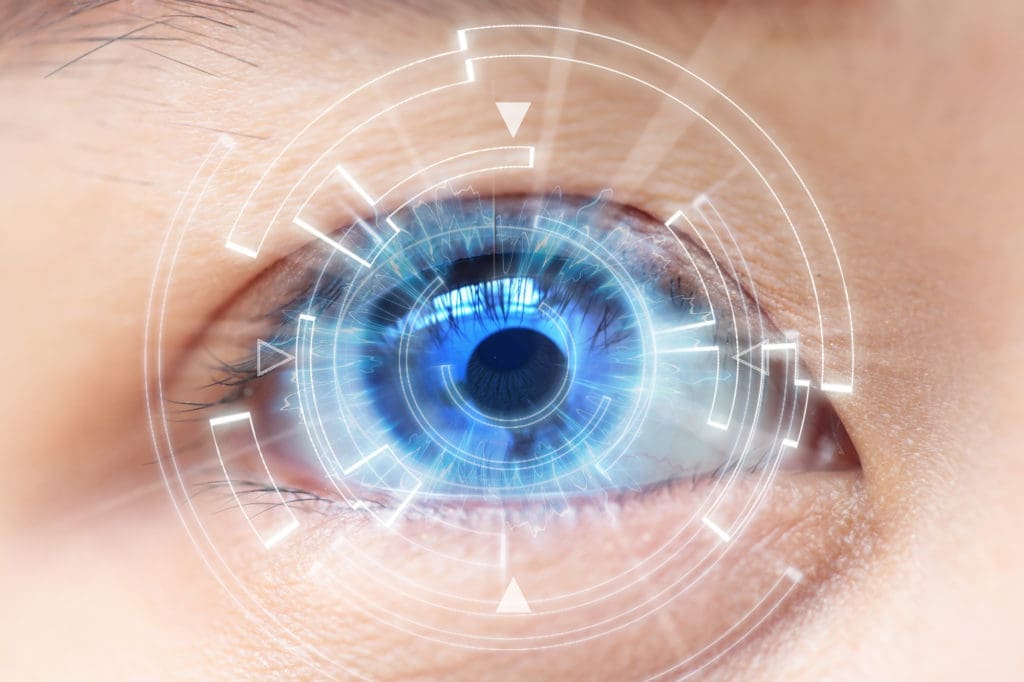
Are you one of the more than 30 million Americans who wear contact lenses? If so, are you changing them on a regular basis? Or, are you guilty of falling asleep while wearing them? Lots of people sleep in their contact lenses and are concerned about the effect this practice can have on their eye health. Is this actually a problem, or can you get away with it every once in a while without any issues? Your questions are about to be answered once and for all. Read on to learn exactly what happens when you sleep in contacts. What Happens When You Sleep in Contacts? You may have heard some horror stories about awful things happening to people after they sleep in their contact lenses. Is there any truth to these stories, or are they just scare tactics employed by eye doctors? While you probably won’t go blind after one night of accidentally sleeping in your contacts, there is definitely quite a bit of merit to these warnings. The following are some of the most common risks associated with sleeping in contact lenses: Increased Risk of Infection The cornea is only able to get oxygen from the air (as opposed to receiving oxygen from the bloodstream). When you wear a contact lens, you impede the cornea’s oxygen supply. When you close your eyes while wearing contact lenses, you further impede its supply. Reducing oxygen by this much, on a repeated basis, can lead to an increased risk of bacterial growth and eye infections. Your risk of infection also stems from the fact that the eye does not have the same level of immune system protection that the rest of the body does. Increased Risk of Long-term Damage When you sleep in your contact lenses, the inner lining of your eyelid sustains tiny abrasions and has a harder time maintaining proper lubrication levels. This, in turn, can lead to inflammation and drier eyes. If you sleep in your contact lenses for an extended period of time, you’ll be more irritation-, infection-, and allergy-prone. You may eventually not be able to wear contacts at all because your eyes are so damaged. Increased Risk of Inflammatory Conditions Your risk of inflammatory conditions like conjunctivitis (pink eye) and keratitis (inflammation of the cornea) also increases when you sleep in your contact lenses on a regular basis. Contact lens wearers are especially prone to a type of conjunctivitis known as giant papillary conjunctivitis. This condition causes small bumps to develop on the inner surface of the eyelid. It also is quite painful and increases light sensitivity. Contact lens wearers are also prone to a type of keratitis known as amoebic keratitis. In this condition, an amoeba infects the eye. Increased Risk of Vision Loss If keratitis goes untreated, it can lead to corneal ulcers. Corneal ulcers, in turn, can increase one’s risk of experiencing vision loss. A corneal ulcer is a sore on the cornea that is caused by an infection — often an amoebic infection. This condition is characterized by severe eye redness, discomfort, pain, excessive tearing, and changes in vision. In some cases, the vision loss brought on by a corneal ulcer is permanent. Other times, depending on the severity of the ulcer, vision can be restored with an expensive and invasive surgery known as a corneal transplant. If you notice signs of a corneal ulcer, it’s important to see your eye doctor immediately. The sooner you get treatment, the better. What about Sleep-Approved Contact Lenses? While, generally speaking, it’s not a good idea to sleep in your contact lenses, there are a few styles that are specifically designed for overnight usage. If taking your contacts out at night just doesn’t work for you, you may want to invest in one of these styles. Most of these lenses are designed for anywhere from 6 to 30 days of overnight usage before they need to be replaced. However, it’s important to remember that these sleep-approved contact lenses do not completely eradicate your risk of developing an infection or experiencing other issues. Many eye doctors recommend leaving these lenses out overnight at least one time per week, if not more often. This helps to give your eyes a rest and is an extra step you can take to prevent infection and reduce your risk of irritation. What to Do if You Fall Asleep While Wearing Contacts Despite all the warnings doled out from medical professionals, it still happens to the best of us from time to time. If you’re not wearing sleep-approved contact lenses and you accidentally fall asleep in them, there are a few steps you can take to minimize the damage and continue to promote good eye health. Remove them as soon as possible Soak your lenses in contact solution overnight if they’re still relatively fresh If you’ve been sleeping in old contact lenses, throw them away and start again with a fresh pair Use artificial tears or lubricating eyedrops if your eyes feel irritated or dry Consider wearing glasses for the day to give your eyes a break before putting in a new pair of contacts If you notice any pain, sensitivity to light, blurred vision, or extreme redness after sleeping in your contact lenses, you definitely shouldn’t put new contact lenses back in. You should also be sure to make an appointment with your eye doctor. He or she will be able to rule out infection and can provide you with eyedrops or other medicine to help prevent your symptoms from getting worse. Do You Need New Contact Lenses? If you’re someone who has a tendency to sleep in contacts, you might be in need of some fresh pairs. If you live in Idaho and need help ordering contact lenses, contact us at Idaho Eye Pros today. To better serve you, we have offices conveniently in Boise, Nampa, Twin Falls, and Idaho Falls. We also make it easy for you to order contacts online, so you can get the
6 Reasons Yearly Eye Exams Are so Important
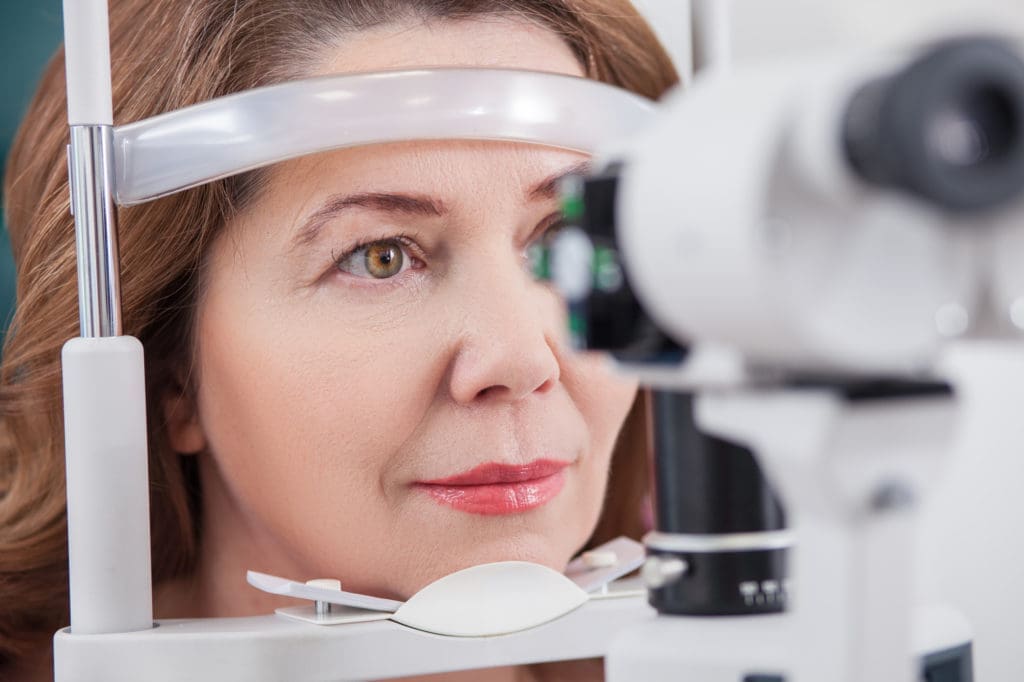
If you’re a lucky person that has perfect vision, you may not think much about visiting an eye doctor. But the truth is that everyone can benefit from seeing an eye doctor. Vision loss is the 9th most common disability in the United States. It can happen as a result of disease or an injury. And it can happen to anyone at any time. In some cases, regular eye exams can help prevent vision loss before it begins to affect your quality of life. Even if you have perfect vision, you should get checked out regularly to prevent problems before they start. Still not convinced? Check out these 6 reasons why eye exams are so important. 1. Up-to-Date Prescriptions If you need prescription eyewear to see well, you should absolutely see an eye doctor yearly. Your prescription may change slightly over time and you’ll need a new one to achieve good vision results. Contact lenses, in particular, can slowly cause damage to your eye if you aren’t caring for them properly. During a yearly check-up, your doctor will check to ensure that your prescription eyewear is clean, fitting well, and not causing any other problems. 2. Early Detection of Eye Diseases Even if you don’t use prescription eyewear, yearly eye exams are still important. Eye diseases can creep up on you with little warning. In many cases, by the time your vision is affected, the disease is already very advanced. There may be little your doctor can do at that point to save your vision. But, with early detection, it is often possible to slow or even stop the progress of the disease. This is true even if you don’t have a history of eye diseases in your family. While many eye diseases are hereditary, that doesn’t mean they can’t happen to you. Your eyesight is precious and not something you want to mess around with. 3. Detection of Other Health Problems In addition to detecting eye problems, many health problems can manifest in your eyes. Some of the things your eye doctor can detect include diabetes, high blood pressure, high cholesterol, and even some cancers. As with almost any disease, early detection is important and a big help in keeping the disease from progressing or causing too much damage. While this is true for everyone, it is particularly important for young children and the elderly. This is because these are both populations that are more susceptible to serious health issues. 4. Good Vision is Important for Learning Another reason that yearly eye exams are important for children and teens is schooling. Good vision is so helpful to the learning process. Much of what children learn in school is presented visually. An undetected vision problem can cause unnecessary hardship. Obviously, a child can still learn if they have trouble seeing, but it is much more difficult. Plus, if the problem is something like myopia (near-sightedness) or astigmatism, the right prescription can help the child. No one wants their child to struggle unnecessarily in school because of a problem that can be addressed. As a side note, don’t rely solely on the vision screenings that schools usually provide for children. These are often performed by volunteers and virtually never done by a trained eye professional. The only purpose of the screening is to ensure that the child can see. There is no actual exam and therefore no possibility of detecting any eye diseases or problems early enough to do something about them. Plus, there are many cases of children passing the screening even though they suffer from eye troubles. And parents are not always informed that their child failed the screening. To ensure that your child is receiving the proper care, take them to a licensed eye doctor. This is the number one way to keep up with any prescriptions your child may need and catch any diseases or problems early enough to correct them. 5. Good Vision Equals Good Quality of Life Good vision is integral to your quality of life. Of course, life doesn’t end for blind or vision-impaired people, but it does change drastically. Vision is a huge part of so much of what we do. If you lose part or all of your sight, you may find that you can no longer enjoy many of the things you enjoy doing. You will have to rearrange your entire life around dealing with vision loss. Thankfully, technology provides help for many people. But a simple eye exam every year can play a big part in ensuring that this never happens to you. It makes sense to take advantage of it. 6. Good Vision Will Keep You Safer Good vision is also important for keeping you safe. Whether driving a car or operating machinery, you need to be able to see what you are doing. If you can’t, see well, you may be putting yourself and others in harm’s way. Some types of vision loss can creep up so slowly that you may not even be aware of it. This can be even more dangerous. When you are aware of impairment you know to take steps to deal with it. But when you think you can see fine, you don’t know to be extra careful. Check out these 10 signs you might need glasses to find out if this is you! Schedule Your Eye Exams Today! Now that you know how important yearly eye exams are, do something about it. If you don’t yet have a good eye doctor, find one and set up an appointment today. If you’re in Boise, Nampa, Idaho Falls, or Twin Falls, Idaho we will be happy to serve you. Trust us here at Eye Pros with your eye health. We offer personalized eye exams, eye health screenings for diseases contact lens fittings, and so much more! We’ll keep you seeing crisply and clearly the way you were meant to. Don’t hesitate to contact us for an appointment today!
10 Signs You Need Glasses
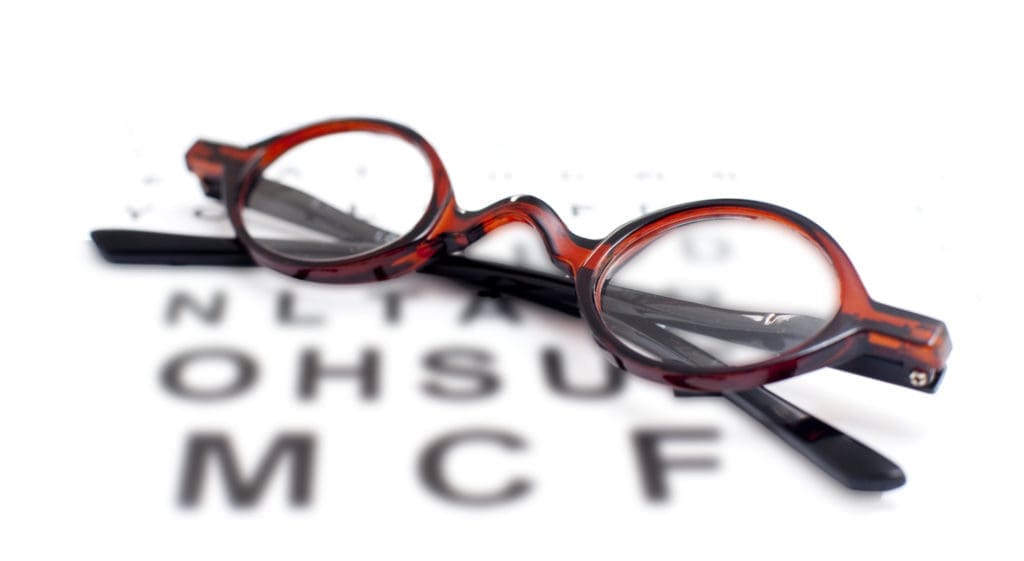
Did you know that upwards of 180 million Americans are visually impaired? One of the most well-known signs of visual impairment is finding it difficult to read. Whether it’s a street sign, magazine, or fine print, having trouble deciphering what something says may mean that you’re having eye troubles. Here are 10 other signs you need glasses. Whether you notice just one or all 10, any of these signs may mean it’s time to schedule an appointment with your eye doctor. 1. Squinting When you squint, you reduce the amount of light that enters your eyes, which decreases the size of whatever you’re focusing on and makes it less blurry. If you find yourself squinting a lot, it could be a sign of visual impairment like nearsightedness or farsightedness. 2. Eye Strain If you have frequent eye strain which occurs as a result of doing regular, everyday activities such as reading, you may want to make an appointment to see your eye doctor. Temporary eye strain has many different causes. Sicknesses like colds or the flu, allergies, or improper sleep can all cause temporary eye strain. But if you notice your eyes are bothering you on the reg, that’s a red flag that there might be a bigger issue at hand. 3. Headaches If you know you’re drinking enough water and getting adequate sleep, you can rule out two other major causes of headaches. Are your eyes still feeling tired or sore even though you’ve gotten a good nights’ sleep? If so, you may be straining your eyes which can contribute to headaches. You may also suffer from headaches if your prescription is too strong. 4. Blurry Vision Minor cases of blurry vision may stem from inadequate sleep or dry or strained eyes. The most common causes of consistent blurry vision, however, are nearsightedness or farsightedness. If you have blurry vision regularly, it’s important to schedule an appointment with your eye doctor. If your vision goes blurry suddenly, call your doctor right away. That’s a sign that there may be an even bigger issue at hand. 5. You Need Bright Light Are you having trouble seeing even when it’s light outside and find yourself turning on an increasing number of lights? If you’re often adjusting the lighting in your home or place of work in order to see better, this may be a sign of farsightedness. It may even be time to get some reading glasses. 6. You Have Difficulty Seeing at Night Do you have trouble seeing at night? Do you only drive during the day because your vision at night is so poor, you’re afraid an accident may occur? If yes is your answer, you could be experiencing symptoms of cataracts. When left untreated, cataracts will continue to reduce your vision – and, if left untreated for an extended period of time – cataracts can cause total blindness. If you think you might be experiencing symptoms of cataracts, it’s wise to get an examination as soon as you can so you can start with treatment early. 7. You Can’t See Your TV Unless You’re up Close to It As a kid, your parents may have yelled at you for sitting too close to the TV because they feared that it could affect your vision. Or, maybe you’ve yelled at your own children because they sit too close to the TV for your comfort. If you find yourself getting closer and closer to the TV because you’re struggling to see what’s going on on screen, that may be a sign of nearsightedness that hasn’t been diagnosed. 8. You Rub Your Eyes…A Lot Do you find yourself rubbing your eyes a lot, even when you know you got a night of good, restful sleep? If your eyes are bothering you on a consistent basis, it may be a sign of eye strain or eye fatigue. You may be able to reduce the strain or fatigue of your eyes by wearing glasses. Schedule an appointment with your eye doctor today and have them give you an eye exam. You may find that a new pair of specs does the trick just fine. 9. You Have Trouble Working at the Computer No…it’s not just that the font on the screen is too small. If you notice that you are having trouble working at the computer for long periods of time, you just might be experiencing symptoms of farsightedness. Before you rush to your doctor’s office, try this: Every 20 minutes, look 20 feet away from you for a total of 20 seconds. Are you still having issues seeing what’s on the screen in front of you? Then it may be time to schedule an eye exam. 10. Eye Pressure Do you have an uncomfortable pressure behind your eyes? If you do, you may be suffering from glaucoma. And believe it or not, glaucoma is more treatable now than ever before. And just because there’s pressure behind your eyes, that doesn’t mean that it’s a guarantee that you have glaucoma. To be safe, though, get your eyes checked out anyway. Notice Any of These Signs You Need Glasses? We covered quite a few different signs you need glasses in this post, but these 10 items are only a few of the possible signs that you may need glasses. If you’ve noticed any of the above signs, it’s a good idea to see an eye doctor and have them check things out. Don’t wait. Schedule your appointment at the first sign of visual impairment so you can correct issues before they get worse. Do you have questions about scheduling an appointment, your prescription, or any issues you may be experiencing? If you do, contact us today, and we’ll work with you to ensure that we answer your questions and address any issues as best we can.
Why Is My Vision Blurry in One Eye? Updated 2024

Do you notice yourself frequently rubbing, squinting, or blinking in an attempt to improve your vision? If you’re experiencing blurry vision in one eye or both, you might attribute it to age or a need for new glasses. However, blurry vision in one or both eyes can also indicate underlying health issues. Prompt treatment of these conditions can often restore clear vision. Sudden blurry vision is not typical, so if it occurs, it’s important to contact your doctor immediately. Before doing so, here’s a brief overview of potential causes of blurry vision: Diabetes and Blurry Vision: Diabetes increases the risk of diabetic retinopathy, which can cause various vision problems, including low-light sight issues and blurry vision. Regular eye check-ups are crucial for early detection and treatment. Stroke and Blurry Vision: Blurry vision, especially if sudden and painless, can be a warning sign of a stroke. Other stroke symptoms include loss of balance, drooping face, weakness or numbness in one arm, dizziness, and slurred speech. Immediate medical attention is necessary if you experience these symptoms. Preeclampsia and Blurry Vision: Blurry vision during pregnancy can be a sign of preeclampsia, a dangerous condition characterized by high blood pressure and protein in the urine. Preeclampsia typically occurs after the 20-week mark and requires medical attention to safeguard both maternal and fetal health. Migraines and Blurry Vision: Migraines may cause blurry vision, sensitivity to light, and other visual disturbances, known as aura. Prompt medical management is essential to control migraine symptoms effectively. Psoriasis and Blurry Vision: Psoriasis can affect the eyes, leading to a condition called uveitis, characterized by inflammation, sensitivity to light, pain, and blurry vision. Treatment options vary depending on the severity of symptoms. Multiple Sclerosis (MS) and Blurry Vision: Blurred vision can be an early sign of multiple sclerosis (MS), resulting from inflammation of the optic nerve (optic neuritis). Other symptoms may include balance issues, fatigue, weakness, and numbness. Early diagnosis and treatment are crucial in managing MS. Brain Tumor and Blurry Vision: A brain tumor can exert pressure on the brain, causing various symptoms, including blurry vision, persistent headaches, nausea, seizures, and personality changes. Medical tests are necessary for diagnosis and treatment planning. Parkinson’s Disease and Blurry Vision: Parkinson’s disease may initially present with other symptoms before causing blurry vision. As the disease progresses, blurry vision may occur due to changes in eye movement and strain on the eyes. Monitoring symptoms and seeking medical advice are essential in managing Parkinson’s disease. Take Care of Your Vision: Your eyes play a vital role in your daily life, and any changes in vision should be taken seriously. Stay vigilant for the symptoms mentioned and consult with your doctor for proper evaluation and management. For more information, visit our website .
10 Ways to Protect Your Vision
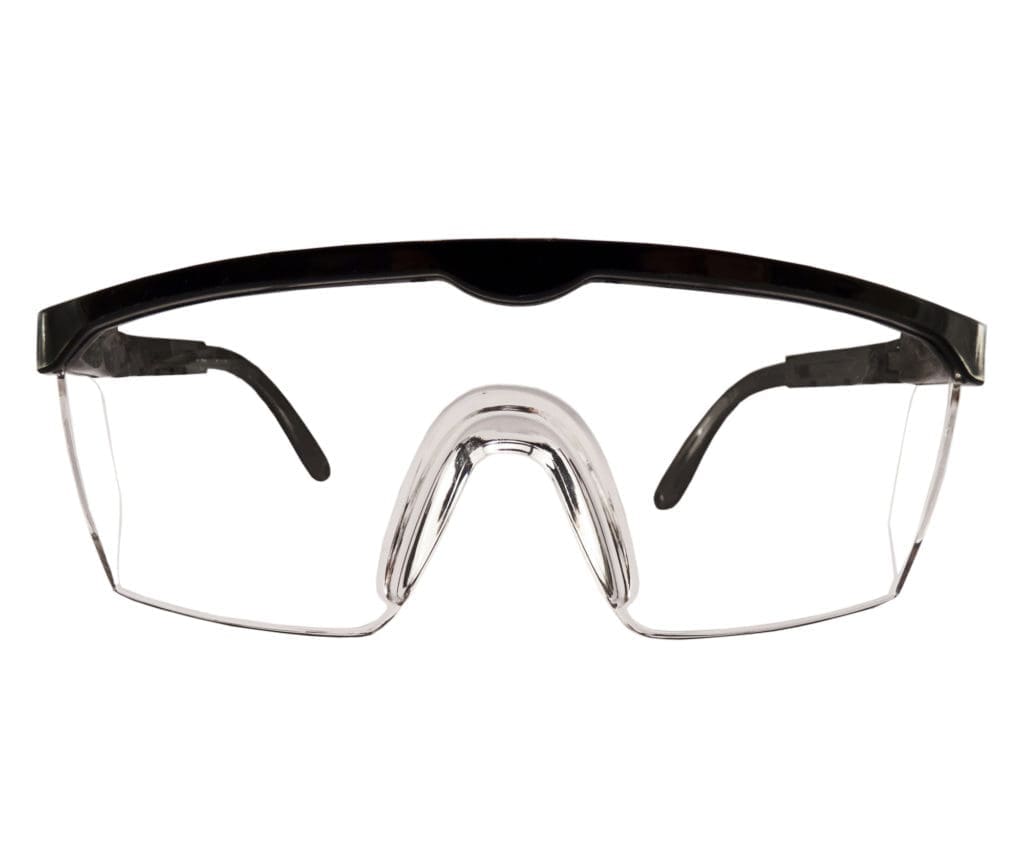
If you think you’re immune to declining vision, think again. It’s estimated that approximately 253 million people have some sort of vision impairment. It’s a fact of life – getting older means more health issues and a greater responsibility to take measures to try and stay healthy. This includes your eyesight. If you’re lucky, your vision will remain strong throughout your twenties and thirties. After that, the chances of vision problems increase. However, it’s never too late to develop good habits that help you protect your vision. And these techniques are probably a lot easier than you thought. Let’s go over ten things you can do to help keep your eyes in good shape. 1. Regular Eye Exams Just because your vision seems unchanged, you shouldn’t neglect regular checkups with your eye doctor. There’s a good chance your vision has deteriorated without you knowing. Going without glasses when you need them puts strain on your eyes and can worsen your eyesight over time. You need to have yearly eye tests done so you know if glasses or contact lenses are necessary. Having regular eye exams also ensures you catch any other conditions early on and treat them before further damage occurs. 2. Don’t Forget Your Shades Ultraviolet rays from the sun can potentially cause a number of eye problems including macular degeneration and cataracts. To protect your vision, you should always wear sunglass when outside. When picking out a pair of shades, it’s important to pay attention to the percentage of UVA and UVB blockage they provide. Look for glasses that block 99 to 100%. Obviously, wearing sunglasses when hanging out by the pool or going to the beach is important. But you should also wear them on partly cloudy days too. 3. Your Diet Matters Antioxidants are very important in maintaining eye health. You can help protect your vision from deterioration by regularly eating fruits and vegetables. Specifically, you should incorporate kale, spinach, and other leafy greens. These vegetables help prevent cataracts. Fruits such as berries, pecans, and artichokes are all high in antioxidants. You should also look for vitamins and supplements that help get rid of toxins. Omega-3 fatty acids have also proven beneficial for vision health. You can get this from salmon, tuna, eggs, and flaxseed. Visit a health food store and ask about other vitamin-rich ingredients that help detoxify your system. 4. Be Aware of Warning Signs If you truly want to protect your vision, you should always remain aware of possible issues and their warning signs. Many people ignore vision deterioration, which only makes it worsen over time. If you notice you’re straining (even slightly) while reading or driving, you need to see your eye doctor. You should also pay attention to things like double vision, trouble seeing in lower light, or blurriness. These could all indicate a need for glasses or contacts. You can also keep your eyes healthy by seeing a doctor if you have redness and irritation, pain, or see spots. You may have a more severe condition that needs treatment. 5. Give up Smoking That’s right! Smoking is even bad for your eyesight. Smoking increases your chances of developing age-related macular degeneration and cataracts. It also contributes to dry eye. If you smoke now and want to protect your vision from future impairment, give it up. Your entire body will thank you. 6. Watch Your Weight In addition to eating the right things, you should also keep an eye on your overall weight. Fortunately, the foods that help keep your eyes in good shape are also good for you. Obesity is often connected to issues like high blood pressure and diabetes. Both of these conditions have the potential to cause vision degeneration. When you’re overweight, there’s more strain on your blood vessels. This, in turn, causes inflammation throughout the body. This added pressure on your blood vessels is potentially damaging to your eyes, so maintain a healthy weight to reduce this stress. 7. Wear Eye Protection You should always wear eye protection when necessary. And we don’t mean prescription glasses or sunglasses. If you play contact or racquet sports, you should always wear sports goggles or a protective mask so you don’t suffer a serious eye injury. If you work around hazardous materials or in environments with lots of dust and debris in the air, wear the proper eye protection. An eye injury could result in permanent damage, so always take precautions. 8. Give the Computer Screen a Break Working on a computer is commonplace now. Unfortunately, it comes with several risks to your eye health. Staring at a monitor all day can cause eyestrain, focus issues, blurriness, and dry eyes. You may also get headaches and neck pain. To help with this, get up and give your eyes a break throughout the day. You’ll probably notice they feel better right away. You should also ask your eye doctor about lenses made specifically for monitor use. 9. Don’t Rub Your Eyes Most people rub their eyes without thinking about it. They don’t even know they’re doing it. Our hands are covered in bacteria, so when you rub your eyes, your transferring potentially harmful germs. Rubbing your eyes can also cause other damage, like scratches to your retina. Try to break yourself of the habit and help protect your vision. 10. Avoid Sleeping With Contacts In If you already wear contact lenses, it’s important you take them out every night before bed. The surface of your contacts may have micro-organisms on them and need to be washed. When you leave them in all night, you increase the chance of these organisms adhering to your eye and causing an infection. Taking your contacts out is also good for your eyes, as it allows them to get more oxygen. Protect Your Vision for Years to Come For some people, vision problems are inevitable. However, by using the tips discussed above, you can preserve the eye health you have now for years. We take
5 Things You Need to Know About Colored Contacts – Updated 2024
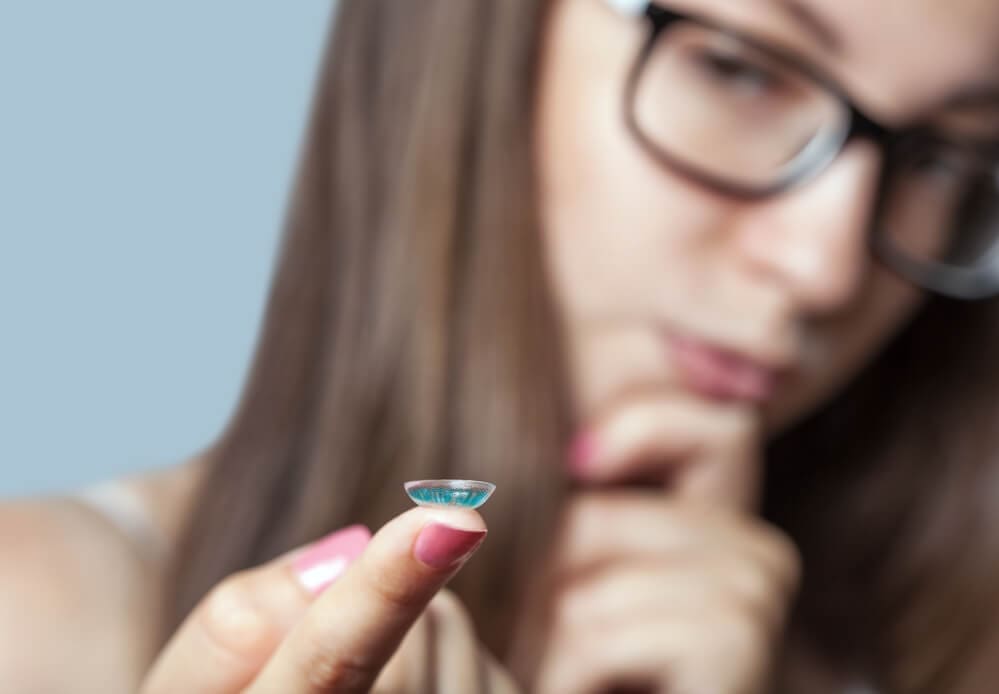
Today there seem to be countless ways to change your look. Whether you love seeking out new fashion trends or like changing your hairstyle every month, there are many ways to express yourself. That doesn’t stop with eye color. In recent years, people have started using colored contacts to create a completely different persona. Many celebrities use them and may even be responsible for the growing popularity. But you don’t have to be famous to change your look with colored lenses. If you’ve been thinking about trying out a new eye color, it’s important to first talk to your eye doctor. You have plenty of options, but you need to educate yourself before making a decision. In this article, we’re going over five important things you should know about colored contacts. 1. Consider the Tint If you’re considering colored contact lenses, it’s important to understand that these are medical devices and not simply for fun. Your vision and comfort come first. When choosing your colored contacts, you need to consider the tint that works best for you. To help you decide, let’s look at the three primary tints available. Opaque Lenses with an opaque tint are non-transparent. They will change the color of your eye completely. These work best for people with naturally dark eyes. Visibility A lens with visibility tent has either a very light green or blue tint applied to it. This tint helps you see the lens while putting them in and also helps spot them if they’re dropped. The color on these is fairly faint. Enhancement Colored lenses with this type of tint help enhance your natural eye color. This translucent tint is a bit darker than visibility tint. If you have lighter eyes and want to boost the color for a more intense look, these are for you. 2. Choosing a Color that Suits You Picking a pair of colored lenses isn’t as easy as simply choosing your favorite color. You may have an idea of what will look best, but they may turn out looking totally wrong. You’ll first want to think about your skin tone and hair color. Take a look at some examples online and get ideas before making a decision. You also need to think about how subtle or drastic a change you want. If you’re only seeking a subtle change, consider going with enhancement lenses. These help deepen the tone of your natural eye color and also add definition around the edges of the iris. Taking this route works best if you have a lighter eye color. If you have a dark eye color and want a subtle change, consider opaque tints with a hazel or blue. You could also go with a lighter version of your natural color. If you want something that pops and gets people’s attention right away, opt for lenses with a bold color. A deep blue or violet works great. 3. They Come in Different Sizes Just like regular contacts, colored lenses come in different sizes. The size you wear is extremely important for both comfort and the health of your eyes. This is why a doctor needs to fit your colored contacts for you. A lens that’s too loose will end up sliding around in your eye and possibly fall out. A tight lens could potentially scratch your eye. Getting the right fit is especially important with colored lenses. If the colored area slides to a different position, it may result in a strange appearance. In addition, your pupil naturally changes size depending on the amount of light you’re exposed to. It’s important to wear contacts that fit perfectly in order to maintain good vision and your desired look. 4. Prescription Color Contact Lenses are Safe You may have heard that colored contacts are unsafe and cause infection or other eye injuries. It’s important to understand that this is a possibility if you buy them without a prescription. However, obtaining them through your eye doctor after an eye exam is totally safe. Remember, these are medical devices. You should treat them just like a regular pair of vision-correcting contact lenses. When getting your lenses, you need to have them fitted by your doctor to ensure they’re comfortable and provide the correct vision enhancement. If you only want colored contacts for special occasions, ask about disposable lenses. Never buy your contacts from a retailer that doesn’t require a prescription. You should also avoid trying to get anime lenses or circle lenses. Your doctor likely won’t prescribe these. Make sure you to follow any care instructions your doctor provides and ask any questions if something’s unclear. These are meant to enhance your eye color and your vision, so treat them like you would any other contacts. 5. Caring for Your Colored Contacts Colored contact lenses need to get cleaned and disinfected regularly. They should also be stored using the correct products and procedures. This helps avoid any type of contamination. You’ll most likely need a multi-purpose, no-rub solution for disinfecting purposes. You’ll also need a case for storing them overnight or when you’re not wearing them. Always wash your hands before cleaning or handling your lenses. Avoid using water to wash them, as tap and even bottled water may contain bacteria. Another important thing to remember is that you’ll need to replace your contacts when necessary. Your eye doctor should be able to tell you when your colored contacts need to be thrown out and replaced with new ones. Aside from following all care instructions just like you would with regular contacts, it’s important you go back for follow-up exams. If you feel any discomfort or think the fit might be off, stop using them and schedule an exam. Change Your Look with Colored Contacts With a little color in your contact lenses, you can give your eyes a makeover. The great thing about colored lenses is you have the freedom to wear them when you want, depending on your mood. Remember, think of
Can You Still Wear Contact Lenses with an Astigmatism?
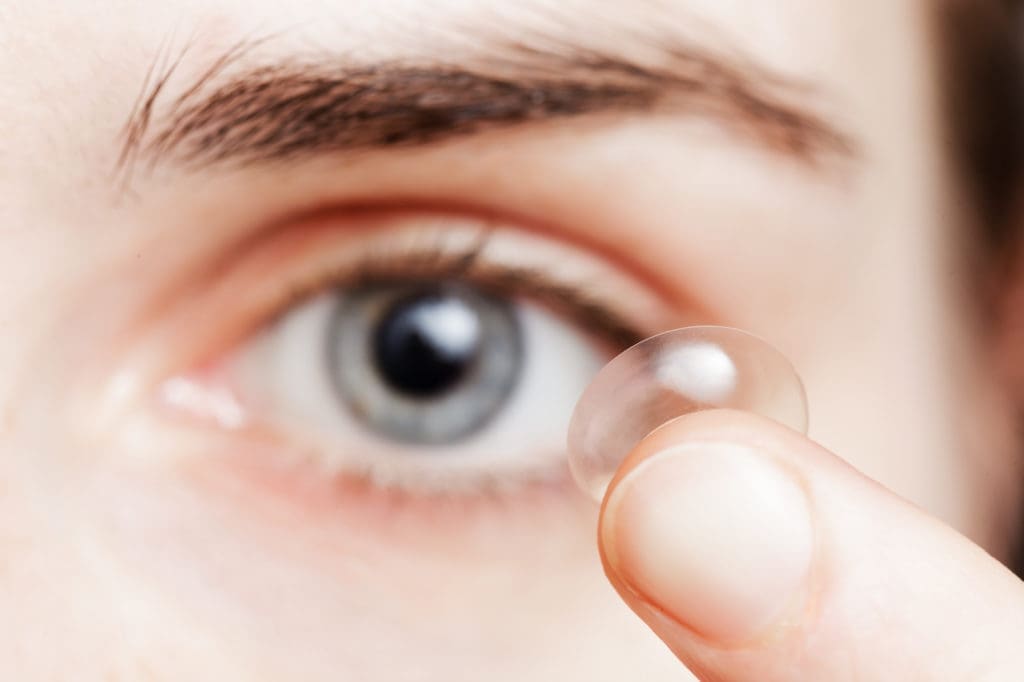
When you’re not wearing your glasses or contacts, do you see blurring, shadowing, or doubling of images? If so, you may have astigmatism. Astigmatism causes blurriness, unlike other vision problems, affecting your sight regardless of how close or far away the object is. This blurriness results from the retina’s inability to focus on light rays properly. If you have astigmatism, chances are you face challenges when finding suitable contact lenses. Those with astigmatism can’t wear traditional soft lenses but need specialized lenses like toric lenses. Toric lenses are specifically designed for patients with astigmatism, allowing for improved focus on objects. They incorporate more than one contact power in a single lens. Soft Toric Lenses Soft toric contact lenses are the most prescribed lenses. They are comfortable, convenient to put in your eye, and just about every contact lens manufacturer carries them. There’s also flexibility with lens prescribing: weekly, bi-weekly, and monthly disposable lenses are available. But there’s more to soft toric lenses than that. For correcting astigmatism, your eye doctor needs to make sure your lens is properly fitted. They do this with laser-made markings. The lenses also have to lie perfectly on your eye to achieve good vision. If you’re having trouble adjusting your lenses, your eye doctor can help you. But don’t be surprised if the lenses feel weird at first. One of the reasons why soft toric lenses are noted for their comfort is because the lens conforms to your eye. It will rotate on its own to perfectly fit on your eye. When you receive your prescription, it will take time for the lens to become adjusted to your eye. Hard Toric Lenses One of the issues with soft toric lenses is their lack of stability. If your astigmatism is severe, the soft lens won’t be able to keep up with the blurriness. It may even result in blurrier vision. If soft toric lenses don’t work for you, consider switching over to hard toric lenses. Hard lenses do just as well correcting astigmatism, but mainly for patients with severe astigmatism. There are two main types of hard lenses: Rigid Gas Permeable Lenses Scleral Lenses Here’s more information on both. Rigid Gas Permeable Lenses Rigid gas permeable lenses, commonly known as RGP or GP lenses, are less prescribed. Only about 9% of contact lens wearers use GP lenses. But, they’re growing in popularity by serving as an alternative to soft toric lenses. RGP lenses are made of a durable plastic that transmits oxygen. Soft lenses contain water; since the RGP lenses aren’t made of water, there’s a decreased risk of eye infection. RGP lenses are easy to clean and last longer than soft lenses. RGP lenses are prescribed to those with severe astigmatism because they retain their shape better. This results in improved vision. But you may think they’re uncomfortable. The term ‘hard contact lens’ sounds extremely uncomfortable. A complaint from older hard lens models was actually their discomfort. But RGP lenses are different. RGP lenses are made for each individual. Your eye doctor will prescribe a lens that matches your cornea shape and the shape of your eye including the curvature, size, and corrective power. RGP lenses are also thinner and smoother than other hard lenses. Scleral Lenses These are specialized RGP lenses that are larger in diameter. The term ‘scleral’ means the lenses completely cover the cornea and extend to the sclera or the outer wall of the eye. Scleral lenses are said to be more comfortable because they cover the entirety of the cornea and sclera. Scleral lenses are also made to protect the thin layer of sclera on your eye, so they’re made delicately. Because of this, they produce less sensation. Scleral lenses are great for astigmatism patients because they rarely dislocate. They’re stable and stay in the center of your eye. They hold in place, allowing for clearer vision. Like normal RGP lenses, scleral lenses are perfect for those with severe astigmatism. Scleral lenses are prescribed when other lens types haven’t worked. Hybrid Toric Contact Lenses These are a combination of hard and soft lenses. The center of these lenses is soft, while the outer rim is hard. Even though RGP lenses boast comfort, patients usually prefer the hybrid lenses over the RGP lenses. But hybrid lenses are very similar to hard lenses. They both correct astigmatism in similar ways. Hybrid lenses also serve as an alternative to soft lenses. The only issue with hybrid lenses is they take longer for your eye doctor to fit. More Information The Issues with Regular Lenses Patients with astigmatism have irregular cornea shapes. This cornea disproportion can result in blurriness from the contact lenses, which is why most astigmatism patients have to be sized for lenses. Since regular soft lenses aren’t as stable as soft, hard or hybrid toric lenses, they often move around the eye. This results in stress to the nerve and ocular muscles. They also don’t deal with refraction problems like toric lenses handle. About Toric Lenses Toric lenses handle refraction problems and aren’t prone to moving like regular lenses. The reason why toric lenses don’t move is that they’re thicker than regular lenses. They are made heavier at the bottom, which is what helps correct vision. What Happens If You Don’t Treat Astigmatism Untreated astigmatism can result in nerve tension, headaches, fatigue, and the habit of squinting eyes. The easiest way to treat astigmatism is prescription contact lenses. Since toric lenses are heavier at the bottom, they help correct astigmatism. Time to Find Contact Lenses for Astigmatism If you have astigmatism, you’re required to find specific types of contact lenses. Toric lenses give the best results since they are stable while providing comfort. There are three types of toric lenses: soft, hard, and hybrid toric lenses. Regardless of your preference, the lens will be sized to fit your needs. If you’re in Idaho and need to schedule an appointment with an eye doctor, contact us.
Why You Need to Book An Eye Exam in Boise
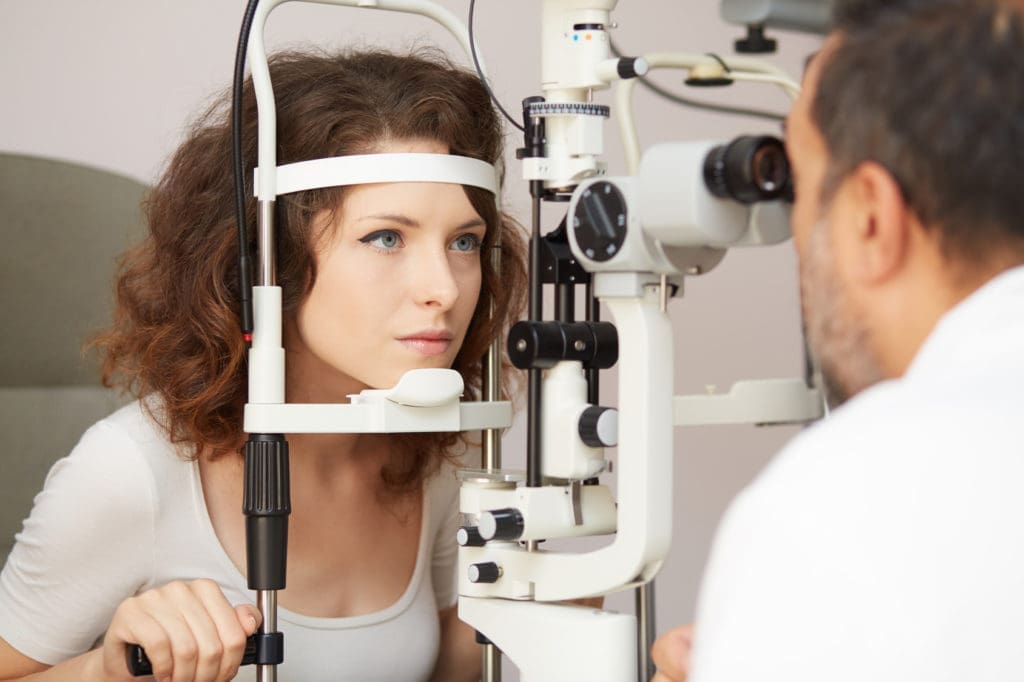
You can read the small print in books and on your computer screen. You have no problem seeing road signs while you drive. There’s no pain or blurry vision. Your night vision seems perfect. Why would you need to book an eye exam in Boise? Without a vision and eye health checkup, you could be at risk for vision loss. That’s why you must have an eye exam in Boise. Vision loss is more common than you might think. More than 27 million Americans over age 18 suffer some form of vision loss. Minor sight loss can lead to blindness when untreated. Worldwide, 80% of blindness is avoidable. Early detection and treatment are needed, though. Let’s review some top reasons why you need to book an eye exam in Boise. Boise Air Pollution Can Affect Eye Health Air pollution can irritate your eyes. A 2015 study showed that Boise had the second worst air pollution in the U.S. Industrial waste and natural events like wildfires can cause pollution. Irritation can lead to Dry Eye Syndrome. Dry Eye Syndrome can make your eyes look red and feel itchy. You may even experience blurry vision. Particles in the air due to pollution may be to blame. Book your eye exam in Boise to check if your eye health and vision are affected by pollution. Eye Diseases May Not Show Symptoms Not all eye disease cause pain or vision problems early on. You may have an eye disease and not know about it. Eye diseases like glaucoma often have no symptoms. Glaucoma is a leading cause of blindness and has no cure. Vision lost to this disease can’t be restored. However, glaucoma is treatable with eye drops when diagnosed early. If you wear glasses or contacts, you may be comfortable with your prescription. Have you noticed any headaches or fatigue lately? You may not realize that your old glasses or contacts are to blame. It may be time to upgrade your prescription. Schedule your eye exam in Boise to help ensure you don’t need medical treatment or a new prescription. Eye Exams in Boise Are Worth the Cost Many vision plans cover the cost of an annual basic eye exam. Even without insurance, an eye exam can be affordable. Ask for an estimate when you make your eye exam appointment. Give yourself time to save for your out-of-pocket cost. Early detection and treatment can save you money. Advanced issues can require more complex, expensive treatments. Schedule your eye exam in Boise now to save money. One Hour of Your Time Can Save Your Vision After work, running the kids to soccer practice, and other errands, who has time for an eye exam? You don’t need a whole day to get your exam. Comprehensive eye exams usually take about an hour. It’s also a good idea to have someone drive you to your exam. The best way to check for glaucoma is with a dilated eye exam. Dilation may cause temporary blurry vision. Other tests you can do in just one hour include: color blindness screening cover test (test each eye by covering the other eye) eye movement depth perception Make the time for an eye exam in Boise. Isn’t one hour out of your day, one day a year, worth saving your vision? Uncover Early Warning Signs of Vision Loss Often there’s a simple explanation for an eye problem. It’s easy to assign blame and hope you’ll get better. Dry, itchy eyes may be irritated from pets, pollen or other allergies. You could also be suffering from dry eye or Conjunctivitis (Pink eye). Pink eye is contagious, and you need medication to get rid of it. A simple headache may cause eye strain and blurry vision. Cataracts may also be the culprit, especially if you’re over age 60. Vision loss due to cataracts can be corrected with early detection. How do you know when your symptoms point to something serious? Schedule your eye exam in Boise to find out. Online Eye Exams Are Helpful, But Not Enough Getting an eye exam while sitting at your home computer sure sounds convenient. No more trips to the doctor’s office! Hold on; this may not be the best idea. Online eye tests can check your vision. They may even help determine if you need a new prescription. The problem is that online tests can’t test your general eye health or detect disease. Even if you have perfect vision, you could still be at risk. You’re also self-administering the exam. Are you better than your eye doctor? You need an eye exam in Boise to make sure your eyes are healthy. Vision Loss Can Happen at Any Age The elderly are more susceptible to glaucoma, cataracts, and macular degeneration. While age can trigger these eye diseases, it’s not the only cause. Smoking, obesity, family history, and diabetes can also increase your risk of vision loss. If you have any of these conditions, you may need to see your eye doctor more frequently. Some eye issues can surface at any age. Poor contact lens hygiene and infections can damage your eyes and vision. People over 40 may experience Presbyopia. This condition comes naturally as we age. Presbyopia makes it harder to focus. Glasses or contact lenses can treat Presbyopia. Photophobia, or sensitivity to light, may affect your vision at any age. Common causes are eye irritation and infection. Have you experienced any changes in your vision? Book an eye exam in Boise to find the cause of your problem and correct it. We’re here to help. Our staff includes members of the Idaho Optometric Physicians and American Optometric Association. Our doctors use state-of-the-art equipment to provide the best eye exam in Boise. Come in and meet your doctors. Together, our Boise doctors have over 100 years of experience helping patients keep their eyes healthy. Our Boise office is conveniently located just a few miles off I-84. Protect your eye health and vision. Contact us to schedule a comprehensive eye exam in Boise today.
The 9 Common Eye Care Mistakes You Need to Avoid
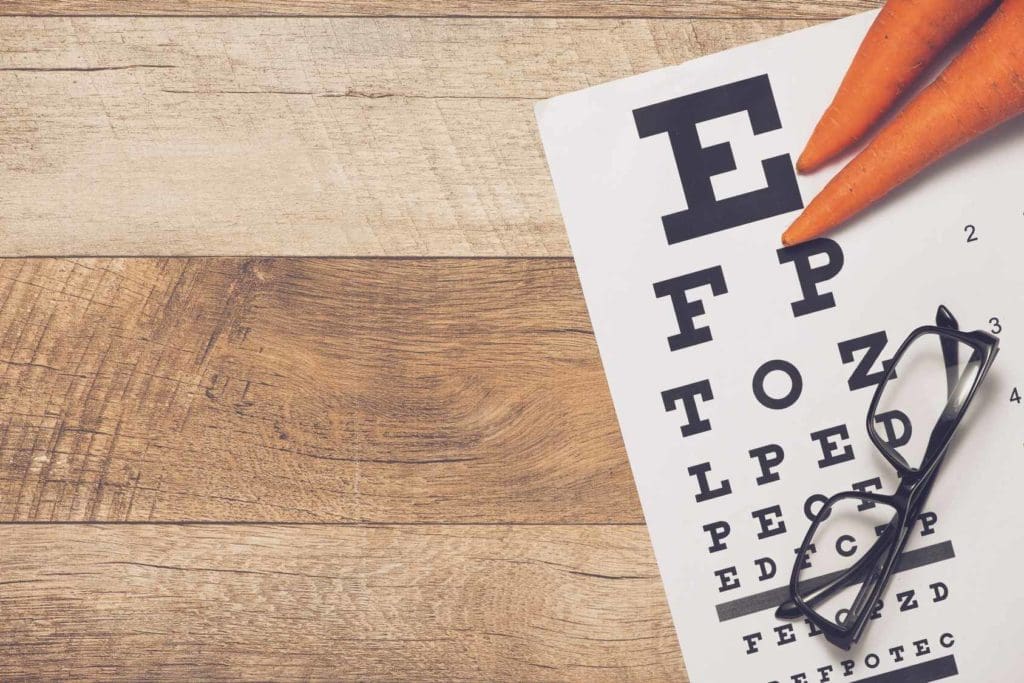
Good eyesight is something we all take for granted. We are often so busy with our daily lives that we don’t even stop to consider our vision. But perhaps it is time to start taking better care of your “window to the world”? 20/20 vision is a wonderful gift, and we sometimes don’t appreciate it enough. It is not until our vision fails that most of us begin to take heed of our approach to our eye health. With a little effort, we can all take better care of our eyes and our precious vision. Eye disease prevention is always better than cure, and this is particularly the case when it comes to problems with our eyesight. Are you making any of the common eye care mistakes? Rubbing and Touching Your Eyes Our eyes can get itchy or feel irritated just as much as any other part of our body. But care must be taken when dealing with this sensitive area. The first step in good eye care is to limit the number of times you touch your eyes. And always ensure that your fingers are clean and grime-free. If your eye is itching, rub it gently with the eyelid closed. If itchiness persists, see your doctor or healthcare professional. Conditions such as styes can cause irritation to our eyes. Expired Drops and Solutions Read that label before using eye drops or solutions. Never put an expired product into your eyes. If a product is expired it is no longer at its premium. Check your medicine cabinet and throw away any expired drops, solutions, or lenses. Your eyes deserve to be treated with products which will help you, not potentially harm you. If you are purchasing the drops directly from a store, read the use-by date. Some stores do not regularly rotate their products and the item you buy may be close to expiry. Non-Prescribed Eye Drops Do you regularly use off-the-shelf eye drops or solutions? Perhaps you work in front of a computer all day and suffer from red or itchy eyes. But have you spoken with an eye care professional about your continued use of the product? It can be all too easy to become accustomed to using store-bought eye drops on a regular basis. The chemicals contained in the products may help with redness or itchiness, but in the long term, they may cause harm. Check with your eye care professional about your continued use of non-prescribed eye drops. They may be able to offer you an alternative. Sleeping In Contact Lenses You may be looking away guiltily as you read that headline. Do you sometimes wear your contact lenses while you sleep? Or do you even do it regularly? You can wear contact lenses throughout the day and evening. You can take short naps while wearing. But do not wear your contact lenses through the night as you sleep. Wearing contact lenses while you sleep deprives your cornea of oxygen. This can cause bacteria to form and may create an infection. General Health Check Ups Failing eyesight is not always directly related to problems with your eyes. Deteriorating vision can be a symptom of other types of illness or disease. A physician can determine if your vision issues are related to a medical condition. Speak with your doctor during your regular health checkup if you notice signs of failing eyesight. He may direct you to your eye care specialist, but it is advisable that you tell him of the issue. Overuse of Technology The use of computers and other electronic devices is an accepted part of our daily lives. In many cases, these devices are an essential component of your profession. If it is necessary for you to use electronics throughout your day ensure you take regular breaks. Get up and walk away from the screen. Perform simple eye exercises such as rapid blinking. Whenever you can, limit the use of electronics as part of your eye care regime. Eye Protection The sun’s UV rays can harm our eyes as well as our skin. Sunglasses should be worn if you are working or playing outdoors. The harmful rays can even reach you while you are driving. Choose a good quality pair of sunglasses with a high UV rating. Select glasses with adequate coverage. Wrap around sunglasses is ideal. Wearing a peaked hat while outdoors is also recommended. Anything you can do to protect your eyes from the sun will help with your overall eye health. Removing Eye Makeup Makeup as a factor in poor eye care is often overlooked. We assume that the mascara or eyeshadow we use is not harmful to our eyes. In most cases, this is true. But sleeping in your eye makeup, or not removing it properly, can clog the tiny glands around your eyes. This can cause irritation, redness, or styes. Remove your eye makeup before retiring for the night. Eyeliner On Your Waterline The waterline is the thin band of skin just inside your eyelashes. This area is flushed with tears, a natural component of your eyes functions. Applying eyeliner to this area, while it may look attractive, can lead to tiny particles of makeup getting washed into your eye. If you wear contact lenses the makeup particles can cause irritation or soreness. If you are not a contact lens wearer, the particles can still carry infection. Limit your usage of eyeliner on the waterline, even if you can’t give it up completely. Your eyes will thank you for it. Have Regular Eye Exams When was the last time you booked an eye exam? Your optometrist is a trained professional when it comes to eye care. If you suspect that your eyesight is failing book an appointment to see your eye specialist. Early attention to eyesight problems can ensure you receive the right treatment in a timely manner. Eyeglasses or contact lenses may be prescribed if your vision is impaired. Dr. Kofoed and his team are Eye Pros. Their practice offers
